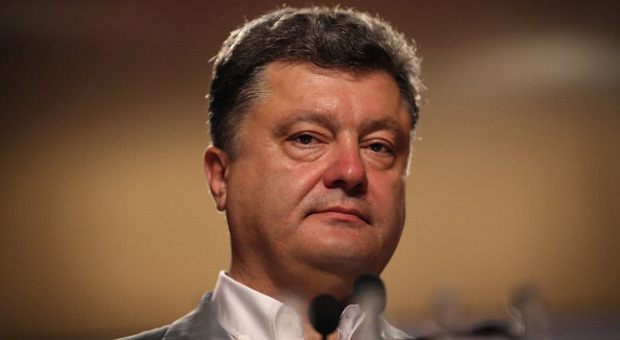Ukraine and Russia promise 'roadmap' to peace after talks
Putin and Poroshenko agree to work together, but Russia says it's up to Kiev to end the fighting

A free daily email with the biggest news stories of the day – and the best features from TheWeek.com
You are now subscribed
Your newsletter sign-up was successful
Russia and Ukraine have agreed to work together to end tensions in eastern Ukraine, following the first direct talks between Vladimir Putin and Petro Poroshenko since the conflict began.
"A roadmap will be prepared in order to achieve, as soon as possible, a ceasefire regime which absolutely must be bilateral in character," Poroshenko said, according to the BBC. "Our main goal is peace. We are demanding decisive actions which will bring peace on Ukrainian soil."
President Putin said Russia would do everything to support the peace plan between Kiev and the rebels "if it starts", but said it was Ukraine's responsibility to talk to the separatists in order to end the fighting.
The Week
Escape your echo chamber. Get the facts behind the news, plus analysis from multiple perspectives.

Sign up for The Week's Free Newsletters
From our morning news briefing to a weekly Good News Newsletter, get the best of The Week delivered directly to your inbox.
From our morning news briefing to a weekly Good News Newsletter, get the best of The Week delivered directly to your inbox.
EU negotiator Baroness Ashton, who has been involved in the talks held in Belarus, said the results were "positive". She added: "There was a sense in which the onus was on everyone to see if they could do their best to try to resolve this."
The Kremlin has been accused of arming the rebels, a claim it has repeatedly denied.
In June Poroshenko declared a unilateral ceasefire but accused rebel forces of failing to follow suit. Since then Malaysian Airlines flight MH17 gas been shot down over the country and Ukrainian forces have laid siege to several towns in the region. More than 2,000 people have been killed in fighting between the Ukrainian army and Russian separatists in Donetsk and Luhansk.
In a separate development, Nato has announced that troops will be deployed to key bases in Eastern Europe in order to serve as deterrent to Russia if it harbours plans to invade the region.
A free daily email with the biggest news stories of the day – and the best features from TheWeek.com
A final decision on the move is expected to be made at a summit in Cardiff next week and could potentially increase tensions between Russia and the West, The Guardian reports.